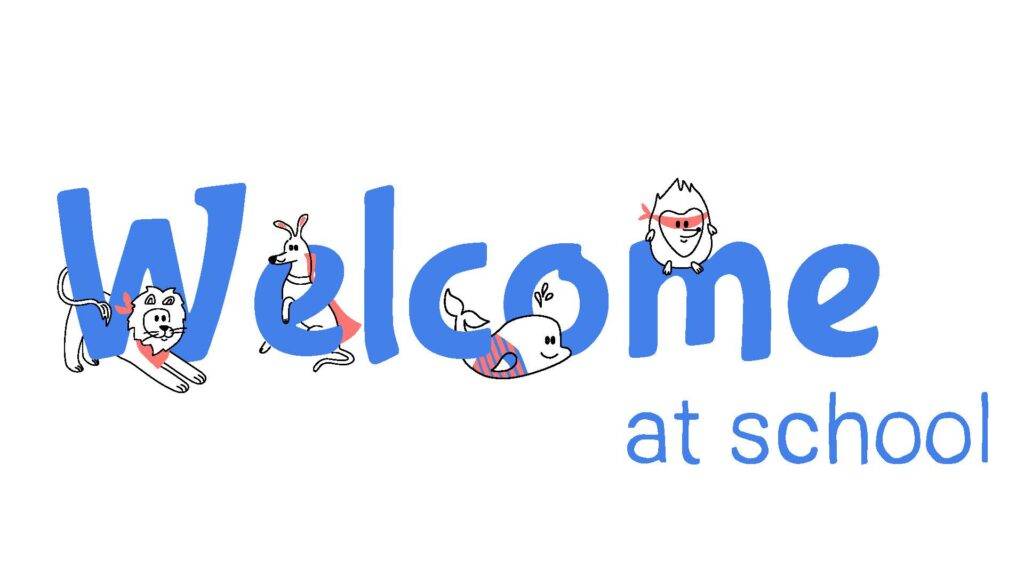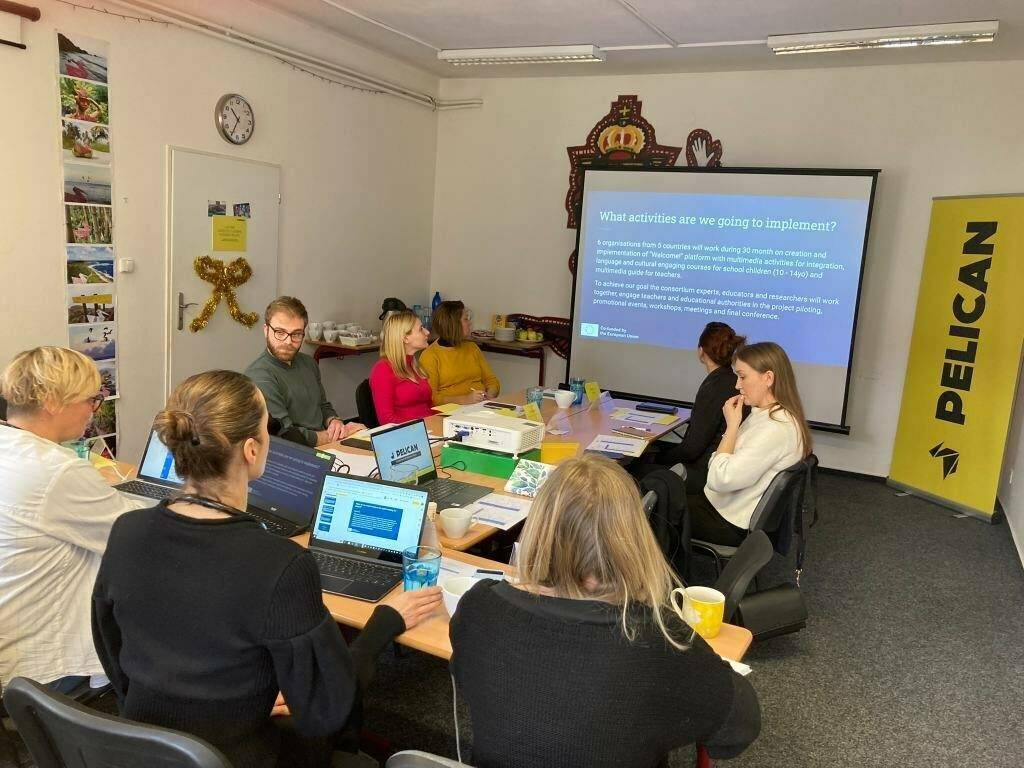Welcome!
In the present European climate, many citizens find themselves in a situation of crisis due to the invasion of Russia on Ukraine. Thousands of people are fleeing their homes with their families to find shelter in the neighboring countries. That in itself creates an enormous change in their lives to which adults, as well as children, need to adapt.
The Welcome! project aims at promoting integration of children and young people with a migrant background in their new school. Forced to flee their own homes, immigrant children can feel at a loss about how to get their lives back on track in a new country.
The Welcome! project’s main idea is to ensure equal access to education and chances of adaptation for children with a migrant background in a new country.

Integration and student-centered approach
Ensuring integration of a new student requires certain skills of the teacher, specifically, defusing misinformation, mediating conflicts and tensions, promoting the sense of belonging in the group and supporting the identity of each individual. However, first and foremost, it means creating an understanding of differences between people, including their cultural background. Student centered approach directs focus from the teacher to the student, putting their interests first and promoting responsibility and independence in them.
Project aims
The project will conclude with three results.
- First, online language materials for learning Bulgarian, Czech and Polish for students with a migrant background who do not yet speak the language. These modules will help them achieve the A1 or A2 level of the new language with a basic introduction to the culture of the new country.
- Second, a multimedia guide for teachers containing proposals and information on various issues specific to working in a multicultural classroom.
- Third, an interactive educational platform containing all results of the project.

Project partners
The partners of this project are experts from Poland, Bulgaria, Greece and Ukraine, together with LS PELICAN, there are:
- Fundacja Wspierania Kultury i Jezyka Polskiego Im. Mikolaja Reja (Poland) is the project’s coordinator. Under the leadership of Fundacja Reja 2 Ukrainian schools were established in Krakow in the first week of war, an emergency program of integrating Ukrainian kids in preschools and schools on exceptional conditions and the language support system is put in place.
- Fundacja Understanding (Poland) runs international projects, courses, trainings and classes for teachers, adults and youth on topics related to mental wellbeing, NVC, multiculturalism and multilingualism.
- Association of European Development (Bulgraria) – their main activities are supporting gender equality and the fight against discrimination, the development of the school community, education and non-formal education.
- Web2Learn (Greece) applies sound methodologies for design, development, testing and evaluation of digital solutions in the service of open and social learning.
- Lviv Polytechnic National University (Ukraine) is leading in Ukraine in the implementation of a new educational paradigm – student-centered education and a competency-based approach in the development and realization of educational programs.
Meetings and workshops
- Meeting in Brno, Czech Republic (18.-19.1.2023)
- Meeting in Thessaloniki, Greece (23.-24.11.2023)
What is Happening in Welcome?
If you are interested, we are happy to come to you and present the project to you, organize a workshop for your employees, provide consultation on a diploma thesis, etc. Help us raise awareness of topics that really matter!
If you want to learn more about this or other European projects, contact us at info@skolapelican.com.

